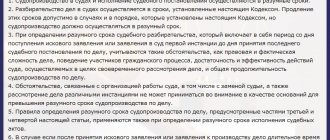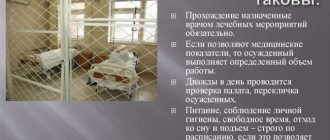New edition of Art. 131 Code of Criminal Procedure of the Russian Federation
1. Procedural costs are expenses associated with criminal proceedings that are reimbursed from the federal budget or funds from participants in criminal proceedings.
2. Procedural costs include:
1) amounts paid to the victim, witness, their legal representatives, expert, specialist, translator, witnesses, as well as to the lawyer participating in the criminal case as appointed by the inquirer, investigator or court, to cover the costs associated with appearing at the place of procedural actions and accommodation (travel expenses, rental accommodation and additional expenses associated with living outside the place of permanent residence (per diem);
1.1) amounts paid to the victim to cover expenses associated with the payment of remuneration to the victim’s representative;
2) amounts paid to workers and those who have a regular salary to the victim, witness, their legal representatives, witnesses in compensation for the wages they lost for the time spent by them in connection with the summons to the body of inquiry, to the investigator, prosecutor or to the court;
3) amounts paid to the victim, witness, and their legal representatives who do not have a regular salary, witnesses for distracting them from their usual activities;
4) remuneration paid to an expert, translator, specialist for the performance of their duties during criminal proceedings, with the exception of cases when these duties were performed by them as part of an official assignment;
5) amounts paid to a lawyer for the provision of legal assistance in the event of the lawyer’s participation in criminal proceedings by appointment;
6) amounts spent on dismantling, storing, sending and transporting (transporting) material evidence, as well as transporting (transporting) corpses and their parts;
7) amounts spent on forensic examination in expert institutions;
a monthly state benefit in the amount of the subsistence level of the working-age population as a whole in the Russian Federation, paid to an accused person temporarily suspended from office in the manner established by part one of Article 114 of this Code;
9) other expenses incurred during criminal proceedings and provided for by this Code;
10) amounts associated with notifying close relatives, relatives or close persons of the suspect about his detention and location.
3. The amounts specified in part two of this article are paid by order of the inquirer, investigator, prosecutor or judge, or by court ruling.
4. The procedure and amounts for reimbursement of procedural costs, with the exception of the amounts of procedural costs provided for in paragraphs 2 and 8 of part two of this article, are established by the Government of the Russian Federation.
Comments to Art. 131 Code of Criminal Procedure
There are a number of comments to Article 131 of the Code of Criminal Procedure of the Russian Federation.
One of the most important among them can be considered the determination of procedural costs. They can be interpreted as sums of money, including compensation for necessary expenses and lost income, remuneration and payments due to individuals and legal entities participating in the proceedings as subjects and other persons involved in solving the problems facing the court. Procedural costs must be distinguished from a number of other expenses:
- expenses for criminal proceedings in the form of maintaining the bodies conducting the process, for example, salaries of judges, prosecutors, investigators, etc.;
- compensation for damage to the injured party;
- compensation for harm caused by unjustified criminal prosecution, illegal use of PMMH, etc., in a rehabilitation manner;
- compensation for damage caused by long-term retention of material assets and other property, as a result of which they became obsolete and lost value.
The law clearly separates two concepts: “compensation” and “collection”. Penalty is discussed in Article 132 of this Code. According to the generally accepted rule, reimbursement of costs is carried out from the budget of the Russian Federation. At the same time, the Code of Criminal Procedure provides for the possibility of compensation at the expense of the participants in the process. Compensation can be made at the expense of entities belonging to the defense and prosecution parties and with their consent. For example, at the request of the plaintiff, some kind of examination can be performed at his expense.
All types of costs are divided into 3 types:
- expenses for ensuring the attendance of participants in the process;
- compensation for lost income or property;
- payment for the performance of any actions performed on behalf of the authorities responsible for the conduct of the case.
Commenting on Article 131 of the Code of Criminal Procedure of the Russian Federation is carried out taking into account a number of by-laws, the practice of applying the Code of Criminal Procedure of the RSFSR, if it does not directly contradict the current criminal procedural legislation and current labor laws. Such documents, for example, include the Resolution of the RF PVS of 1973, number 8. It talks about judicial practice on the application of the law on the collection of costs.
The amount paid for diversion from regular activities of people who do not have a regular income is equal to the daily allowance. If there is a constant income, the amount of payments is chosen by the subject. For example, if his regular income is less than the daily allowance, then he has the right to receive the latter.
Payments to experts, translators and other specialists are considered procedural costs only if they perform the required actions outside of their official assignment. An example of this would be the involvement of a philologist professor teaching at an institute in conducting a linguistic examination. An agreement for the provision of services is concluded with experts, translators and other specialists. The amount of payments is regulated by the average market price. If the listed persons perform the official task, then payments are made to their employers. For poor quality services, the amount of payments may be reduced.
If the listed persons are law enforcement officers, then payment for their services cannot be classified as procedural costs.
A lawyer appointed by the authorities conducting the legal proceedings receives payments in the amount of no less than 275 rubles and no more than 1,100 rubles per day of participation. If a defender is involved on non-working days or holidays, then the indicated values are doubled. Currently, these amounts are indexed and increased by 1.085 times. A lawyer is not prohibited from participating in several trials at once for additional payment. The defense attorney may also receive remuneration from the funds of the bar association. These payments also fall under the concept of procedural costs.
Expenses for conducting forensic examinations fall under the concept of costs only under the condition that expert institutions are not structural divisions of the bodies responsible for conducting the process.
According to the law, the list of costs is not exhaustive. These also include:
- reimbursement of the cost of items damaged during examinations;
- reimbursement of the price of damaged property during a legal search;
- costs associated with searching and providing evidence in the case;
- expenses for burial after exhumation, etc.
This list can be continued further. The main thing is that the expenses have signs of costs, voiced in the first and most important commentary to Article 131 of the Code of Criminal Procedure.
Types of costs
To understand the peculiarities of collection and the principles of assigning costs to one or another side of production, their types should be indicated. The list is directly indicated in the said norm of the law and is not subject to broad interpretation. This excludes the arbitrary application of the law and the inclusion in judicial acts of costs that are not specified in the law.
- household expenses. These are the expenses that the parties incur when traveling for investigative actions or to participate in court hearings. These expenses include financial expenses for renting housing and daily allowances. Thus, the Code of Criminal Procedure establishes the right of participants in proceedings to compensation for the costs of renting housing, daily allowances and travel. It is important to note that such rights belong to all participants in the production. These are defense attorneys who act on behalf of the accused by appointment without entering into a paid agreement. In addition, these are witnesses, victims, specialists and other participants. Often, the proceedings are held in another city or region. Investigative authorities or the court must ensure the appearance of the listed persons for the consideration of the criminal case. In order not to violate their rights, the government has established guarantees for reimbursement of expenses associated with staying in another area;
- the victim has the right to demand compensation from the convicted person for hiring a representative. The right to enter into an agreement with a representative is unconditional. The victim can exercise this right regardless of whether the guilt of the accused is proven. Since free representation of the interests of the victim is not provided for by law, such persons are forced to pay for the services of lawyers. However, after the accused has been found guilty by a verdict, the victim can apply to the court with a separate petition for compensation for the expenses incurred. And such requests are subject to unconditional satisfaction. But if the accused is acquitted, the right to reimbursement of expenses does not arise;
- appearing before an investigator or interrogating officer may be associated with interrogation, on-site verification of testimony, confrontation and other investigative actions. Calling them is mandatory for all participants in the production. These are the victim, witnesses and other persons. On the day these actions are performed, they are not at work and may not receive enough wages for the specified day. In order to respect the rights of such persons, the law established the possibility of compensation for lost wages for the time spent in an investigative agency or court;
- costs are the money spent on forensic examinations. In a number of criminal cases, the appointment of expert research is mandatory. For example, when investigating criminal cases of personal injury, it is necessary to establish the severity of the harm caused. This is done only by expert means. And the costs of paying experts are considered procedural costs;
- costs are considered to be amounts paid to the defense lawyer of the accused or defendant. If such persons are unable to pay for the work of a paid lawyer, a defense attorney is appointed free of charge. However, legal work is the same work activity as any other. Accordingly, it must be paid. Therefore, the costs of paying for the work of a defense lawyer are classified as legal costs and are subject to recovery in favor of the lawyer.
Thus, procedural costs are all expenses associated with organizing the trial and paying remuneration to the parties involved.
Resolving cost issues
The amounts and types of costs are known by the end of the criminal proceedings. Witnesses and victims are required to hand over to the court travel documents and documents confirming payment for housing. To reimburse the expenses incurred, they are required to file a corresponding petition with the court. Such petitions are made after questioning a witness or victim.
Before the end of the trial, the lawyer submits a petition for payment of his work from the state budget.
Applications are considered as follows:
- all submitted petitions are assessed by the court, and a decision is made on them when rendering a verdict in the case;
- if for some reason the judge forgot to consider the petitions and did not reflect the decision on them in the sentence, this can be done in the execution of the sentence. In this case, the judge will make a separate order on applications for costs after sentencing. Such situations are more typical for Russian law enforcement practice.
The fact is that the judge is interested in ensuring that his sentence is not o. After all, the court of second instance can cancel or change the initial decision. This affects the quality and evaluation of the judge's work.
To ensure that the sentence is not overturned on issues related to costs, these issues are resolved in separate decisions in the order of execution. This gives the court extra “insurance.”
Practice examples
Investigative and judicial practice is very extensive.
It must be said that cases of reimbursement of expenses for travel, accommodation and daily allowances are very rare. Participants in production simply do not use their rights because they are not aware of them. In this case, compensation for the lawyer’s work occurs in all cases.
It is not uncommon to seek compensation for the services of a victim’s representative.
As an example of the work of Art. 131 of the Code of Criminal Procedure of the Russian Federation, a criminal case can be cited for causing moderate bodily harm to a minor K. The criminal case was initiated under Art. 112 of the Criminal Code of the Russian Federation. The victim was beaten by a classmate. His mother was recognized as the legal representative of the minor victim.
In order to achieve a full and objective investigation of the criminal case, she turned to a lawyer for legal assistance. An agreement was concluded with him to represent the interests of the victim. As part of this agreement, the lawyer was paid remuneration in the amount of 30,000 rubles.
Based on the results of the investigation, the criminal case was sent to court. At the trial, the lawyer will receive a remuneration of another 30,000 rubles. The court issued a guilty verdict and sentenced the defendant to compulsory labor. After this verdict entered into legal force, the victim filed a civil claim against the convicted party.
- Referred to the provisions of Art. 131 Code of Criminal Procedure of the Russian Federation.
- She demanded reimbursement of all expenses in the amount of 60,000 rubles. As proof of expenses, the victim attached contracts with a lawyer and receipts certifying receipt of funds.
The claim was satisfied in full, and the parents of the convicted minor were forced to pay these costs.
Another commentary on Article 132 of the Criminal Procedure Code of the Russian Federation
1. Procedural costs are borne by the state or the convicted person, depending on the outcome of the criminal case.
2. If a person is found guilty of committing a crime and convicted, then it is generally accepted that he himself caused the criminal process and thereby incurred the costs associated with it, which are assigned to the convicted person. The exception is amounts paid to the translator. Collection of these amounts from the convicted person would mean that he pays for not knowing the language in which the proceedings in his case were conducted (Bulletin of the Supreme Court of the Russian Federation. 1997. No. 8. P. 17). This type of procedural costs is reimbursed from the federal budget, and if the translator performs his functions as part of an official assignment, then payment for his work is made by the organization in the form of a salary, and the state reimburses the amount of expenses of this organization.
3. If several defendants are found guilty in a case, the court establishes the amount of costs that should be imposed on each of them, taking into account the guilt, degree of responsibility and property status of these persons. In other words, the collection of procedural costs is carried out on a shared basis, and not on a joint and several basis.
4. When the defendant is acquitted in a case initiated only on the basis of a complaint from the victim, the court has the right to assign costs in whole or in part to the person on whose complaint the proceedings were initiated. The application of this rule meets the moral requirement of justice only in the case when it is reliably established that the victim committed a false denunciation or erroneously assessed the situation. If the defendant is acquitted due to the presumption of innocence due to lack of proof of the charge, but the victim, for example in a rape case, knows for sure that the criminal has escaped legal retribution, collecting costs from her would also look like a mockery.
5. If the issue of costs for some reason (omission of the court, late appeal) was not resolved in the sentence, it is subject to consideration in the manner established for resolving issues related to the enforcement of the sentence and its execution.
6. Procedural costs are reimbursed from the federal budget in cases where: a) the suspect or accused is rehabilitated; b) the suspect or accused refused to have a defense attorney, but the refusal was not satisfied and the defense attorney participated in the criminal case as assigned; c) the defendant is financially insolvent.
7. The court has the right to exempt the convicted person in whole or in part from paying procedural costs if this may significantly affect the position of persons who are dependent on the convicted person, in other words, are maintained at his expense. This rule has a clear moral content, because it does not allow judicial decisions to be made that would force someone who has nothing to do with the crime or the criminal case to suffer financial hardship.
8. Amounts paid to participants in criminal proceedings listed in paragraphs 1 - 4 of part two of Article 131, and subsequently collected as legal costs, are calculated according to the rules established by the Instruction on the procedure for compensation and the amount of reimbursement of expenses and payments of remuneration to persons in connection with their summons to the bodies of inquiry, preliminary investigation, prosecutor's office or to the court, approved by Resolution of the Council of Ministers of the RSFSR of July 14, 1990 N 245, seq. change and additional (Collection of Resolutions of the Government of the RSFSR. 1990. N 18. Art. 132; Collection of Acts of the President and Government of the Russian Federation. 1993. N 10. Art. 847). A number of practically important issues regarding the collection of legal costs in a criminal case are resolved in Resolution of the Plenum of the Supreme Court of the RSFSR dated September 26, 1973 No. 8, “On the practice of applying legislation on the collection of legal costs in criminal cases” (Collection of Resolutions of the Plenums of the Supreme Court), which retains a certain significance to this day. Courts of the Russian Federation (USSR, RSFSR) in criminal cases. M.: Prospekt, 2001. pp. 386 – 388).
9. Legal costs cannot be recovered from defendants in respect of whom the conviction has not taken place or has not entered into legal force, in particular from those who have the trial itself still ahead, but the defense lawyer has already provided them with legal assistance (for example, at the stage of the entire preliminary investigation or during the preparation of a complaint, a separate complaint and its judicial consideration, etc.) and claims to be paid for his work. In such cases, this work, by decision of the court, is always paid from the federal budget (see Resolution of the Presidium of the Supreme Court of the Russian Federation of March 25, 2009 in the case of S. // Bulletin of the Supreme Court of the Russian Federation. No. 9. pp. 22 - 23).
Legal advice on comments to Art. 131 Code of Criminal Procedure of the Russian Federation
- Arthur Konishchev
On appeal, the district court issued a ruling.
on the cancellation of the guilty verdict of the magistrate under Art. 129.ch1 in connection with the entry into force of federal law No. 420, criminal prosecution was terminated due to the lack of corpus delicti. How can a person convicted by a magistrate court be compensated for material damage (lawyer services in a magistrate court). The prosecutor did not appeal the district court's decision within the established time frame. he did not appear in the district court at all without any reason. I didn’t make any requests. Lawyer's answer:
Lawyer's services are paid by court decision (in a separate resolution) at the rate of 275 rubles per day multiplied by the district coefficient and multiplied by 0.085, from public funds with possible subsequent recovery from the “culprit”. Art. Art. 131, 132 of the Code of Criminal Procedure of the Russian Federation. If a decision on recovery is made in YOU, then usually the bailiff sends the decision to the place of work, and the accounting department deducts the money from the salary and sends the money to the state account.
I am being summoned for questioning as a witness for questioning at the Investigative Committee in Moscow, and I myself am from Samara. Am I required to travel at my own expense?
- FOR interrogation or for other investigative actions? In any case, it is worth stocking up on a lawyer in Moscow.
summoned as a witness to court by subpoena in a criminal case regarding an accident in Ukraine.. Who pays for travel to the location of the court and travel expenses?
- Lawyer's answer:
According to Art. Art. 131-132 of the Code of Criminal Procedure of the Russian Federation, travel expenses are considered procedural costs, collected from convicted persons or reimbursed from the federal budget. Ukraine has its own criminal procedural legislation, and I think it also determines the procedure for compensation. However, how soon and whether your travel expenses will be reimbursed in full is a question. So, if you want, you can take a chance on the fare.
Question regarding part 1.1 144 of the Code of Criminal Procedure. respond only to lawyers.+. Persons participating in the production of procedural actions when checking a report of a crime are explained their rights and obligations provided for by this Code, and are provided with the opportunity to exercise these rights to the extent that the procedural actions performed and procedural decisions made affect their interests, including the rights ...use the services of a lawyer, ..The question is of this nature. that is, the applicant contacts the authorities with a report of a crime... and his interests can only be represented by a lawyer? Should Part 1.1 of Art. 144 of the Code of Criminal Procedure of the Russian Federation should be interpreted in such a way that if it is written “they can use the services of a lawyer,” then it should be understood as “they can use the services of ONLY a lawyer.” Wouldn't this be a violation of the applicant's rights? Well, judge for yourself... a person suspected of a crime even at the stage of initiating a criminal case, even from the moment of arrest, has the right to use FREE legal services, but the APPLICANT does not have such a right... will he be provided with the services of a lawyer only FOR PAID and without options? and then there is no direct prohibition in the law for the applicant to use the services of a representative other than a lawyer? that is, how so? what do the comments say? courts? Maybe the constitutional court wrote something about 144 in this part? gentlemen, lawyers, what do you think?
- Lawyer's answer:
You look at everything, not article by article, and you will see that there is no such person as a representative of the victim in criminal proceedings! Further, filing a statement is not a procedural investigative action - it occurs even before the initiation of a criminal investigation! And third: the person under investigation is entitled to a lawyer for protection, and your interests are protected by the state represented by the entire Ministry of Internal Affairs of the Russian Federation - and therefore if you have a whim to have your own lawyer, please, but any whim is for your money!
What BCC is set when paying a loan to the FSSP according to the resolution, payment by card through Sberbank Online
- So the loan is not paid to the bailiff service. Your IP or request must indicate the BCC for which the FSSP is being credited to the budget. Or at least the name of the payment. You can find KBC by name. KBK for income...








